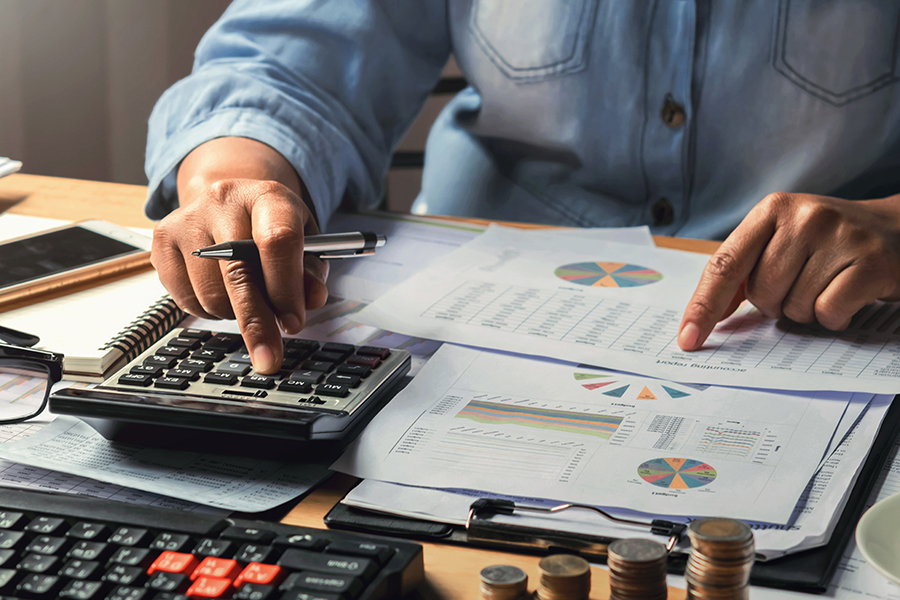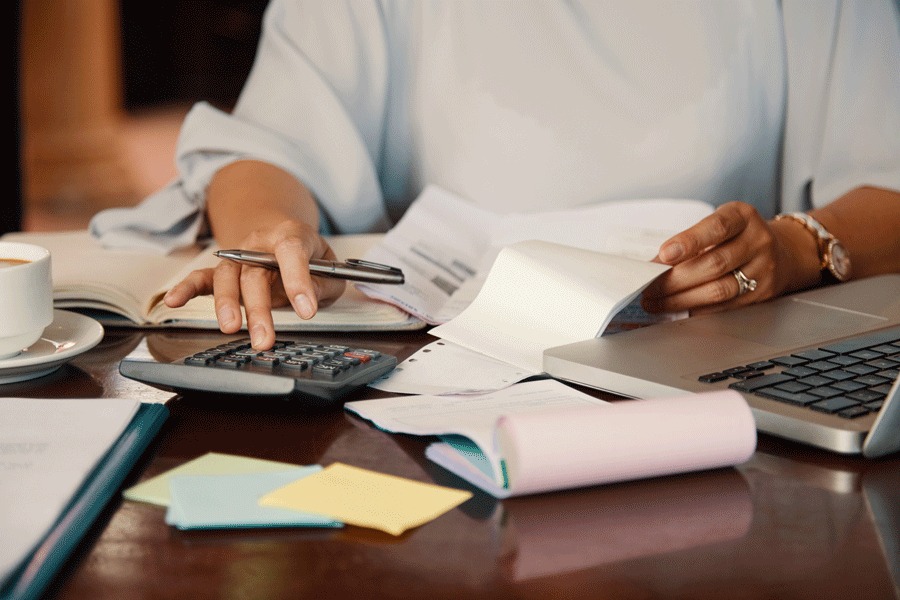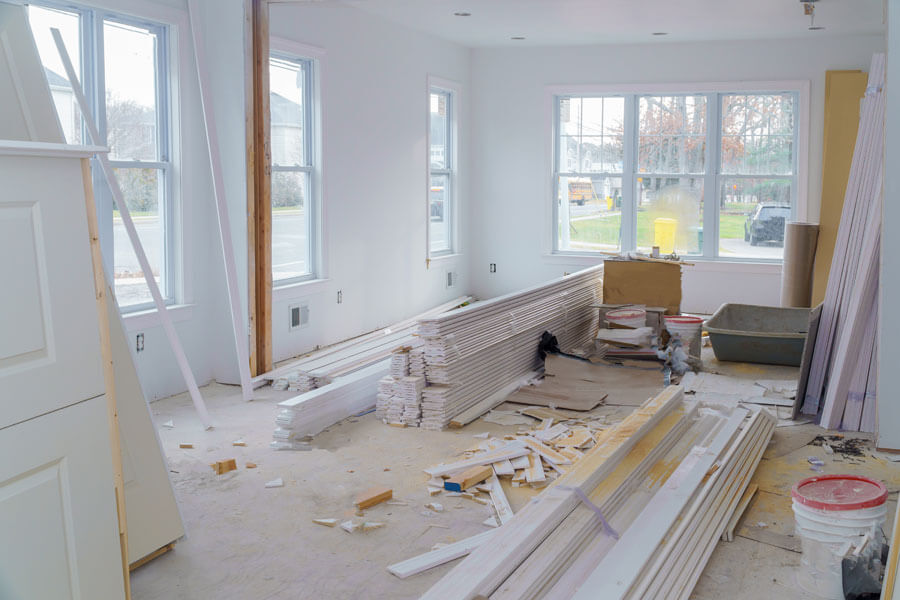Creating a budget may not be exciting, but it is crucial when planning a trip. You do not want to travel abroad with less money than necessary and discover you do not have enough for food and other necessities. A travel budget is also an excellent money-management tool, helping you travel more frequently by making better financial decisions.
Every traveler needs one to plan a trip realistically, save for a vacation, spend money wisely while traveling, and plan for unexpected expenses. Destination impacts your expenses the most, making it the first item on your list. Some other expenses include flight tickets, luggage, accommodation, transportation, food, beverages, activities, and shopping.
This article covers all the necessary expenses to be included in a travel budget, how to create it in 6 easy steps, and certain factors to pre-consider.
Free Travel Budget Templates
Given below are free templates:
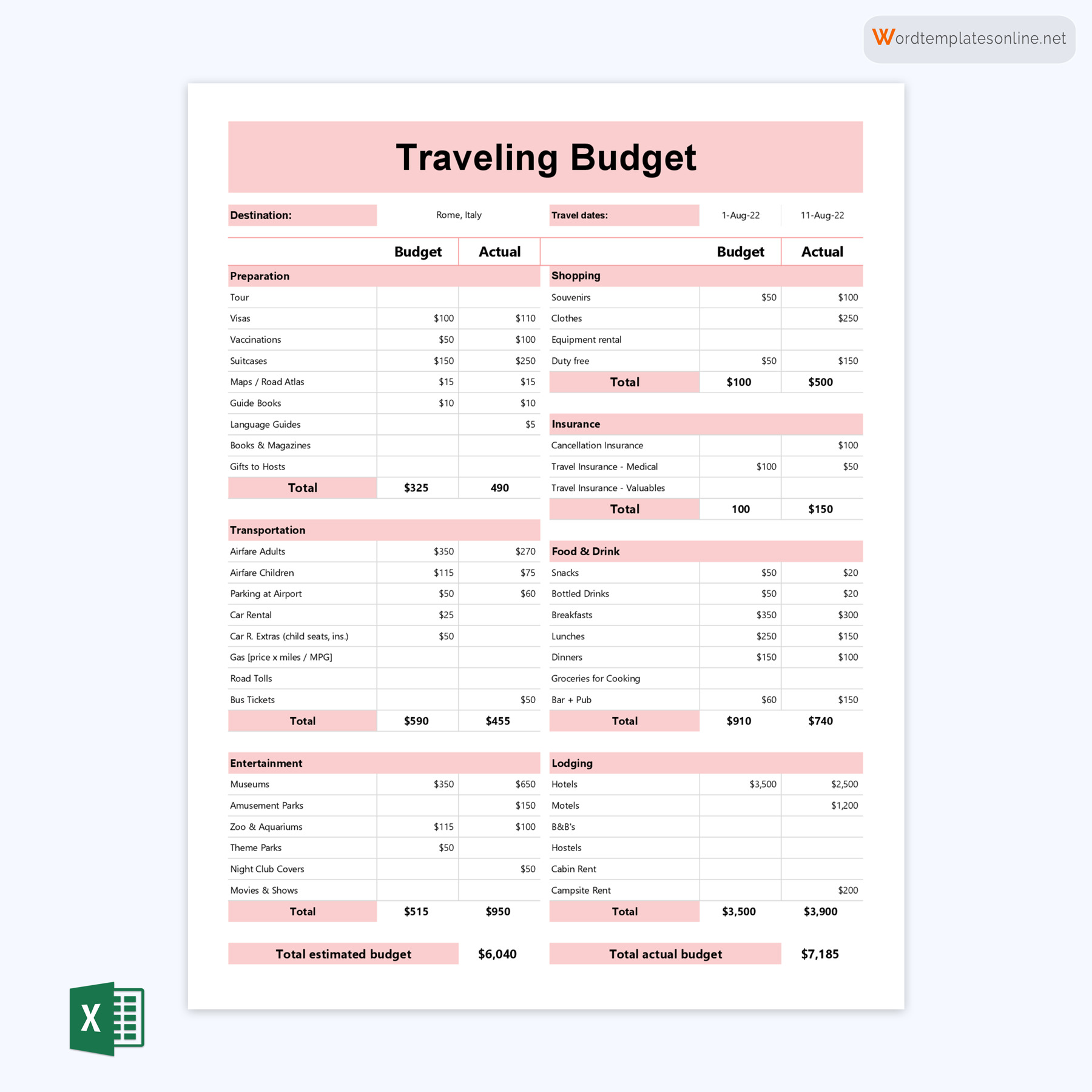
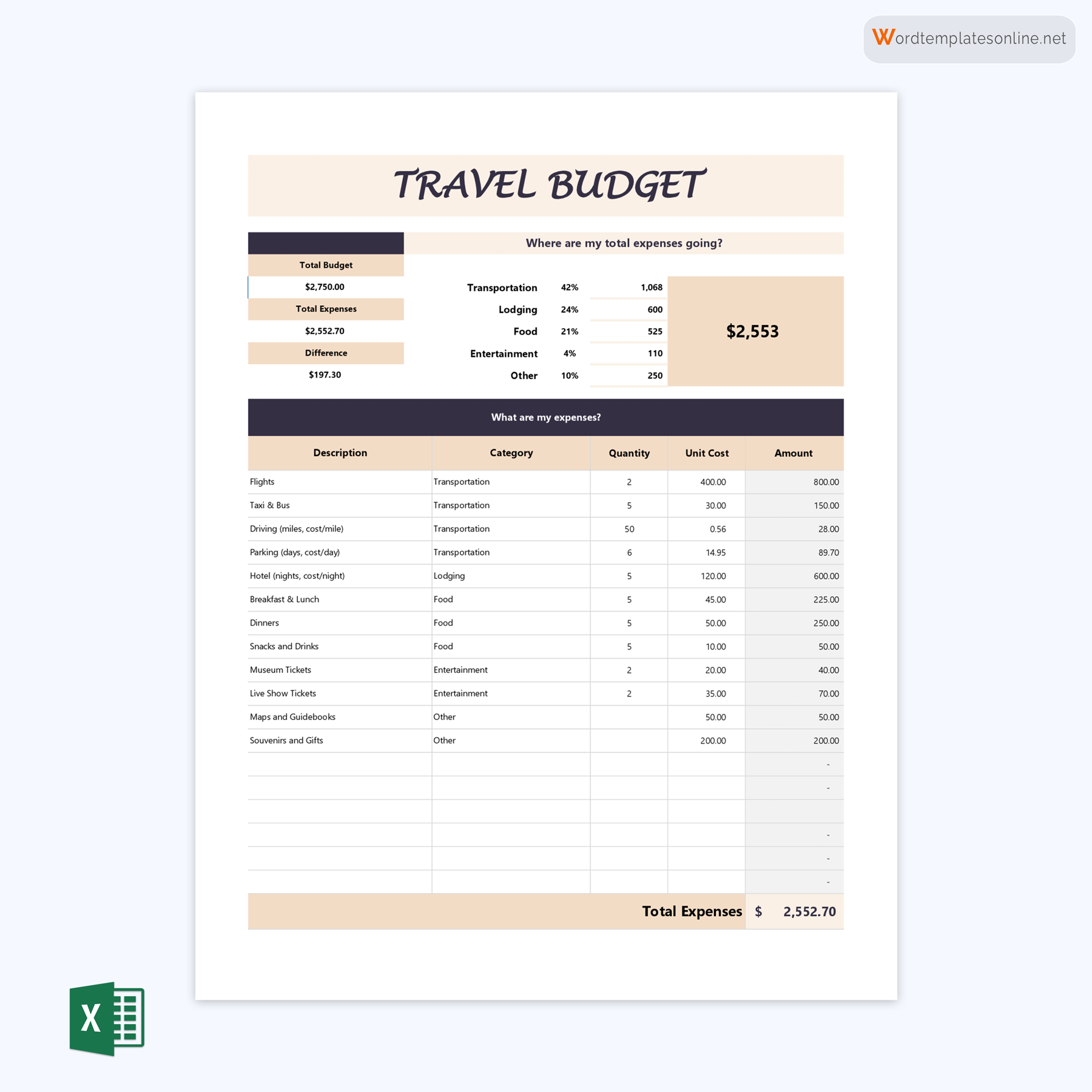
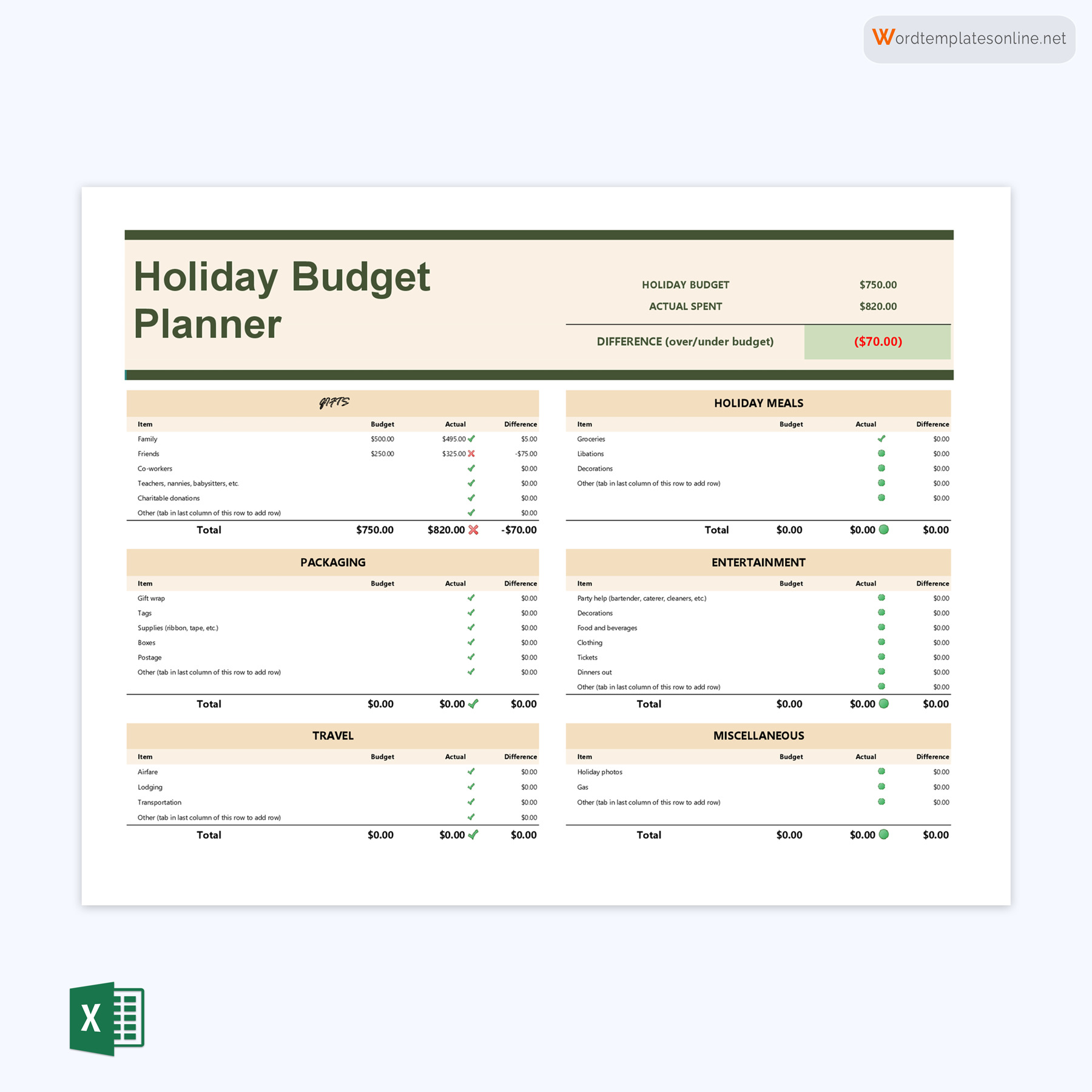
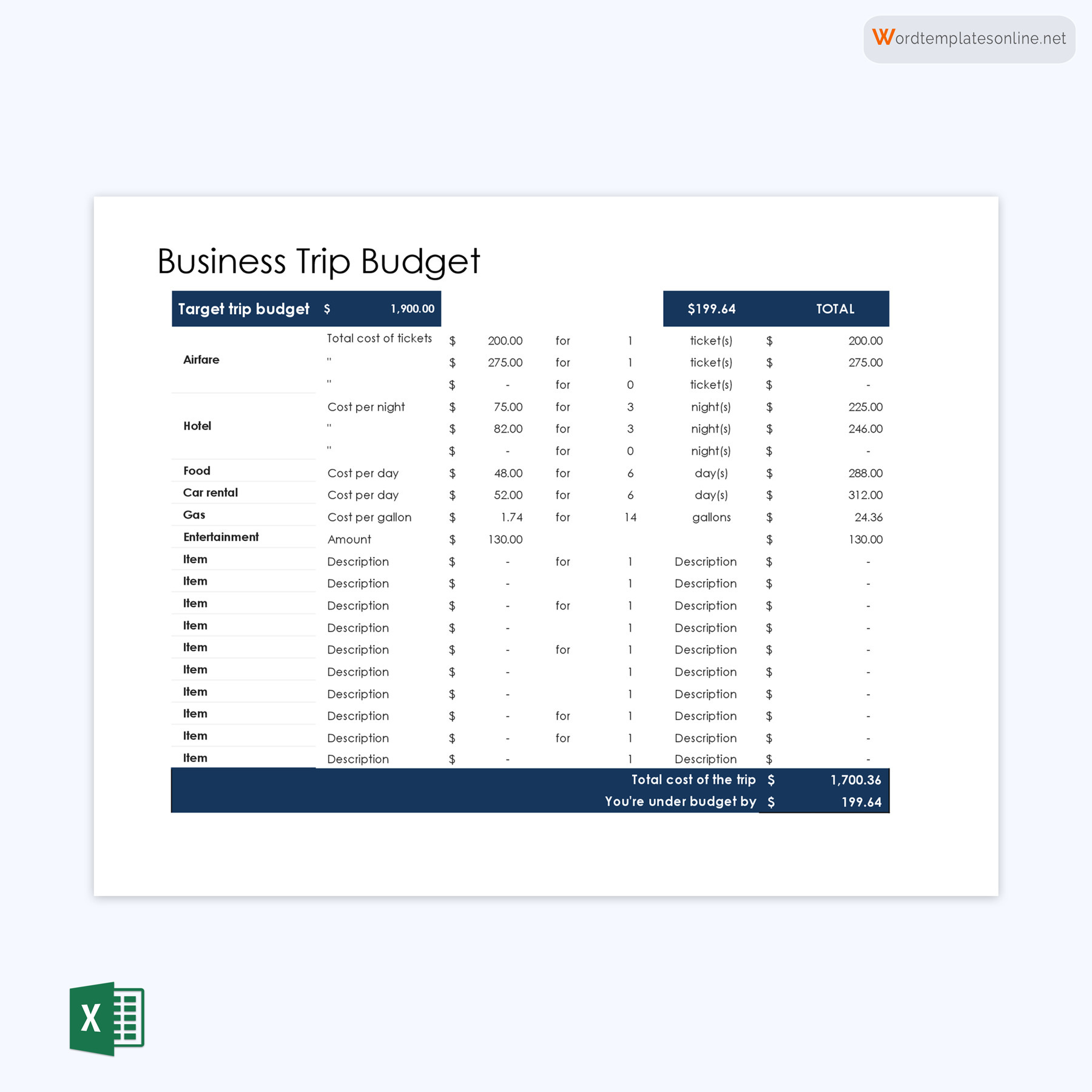
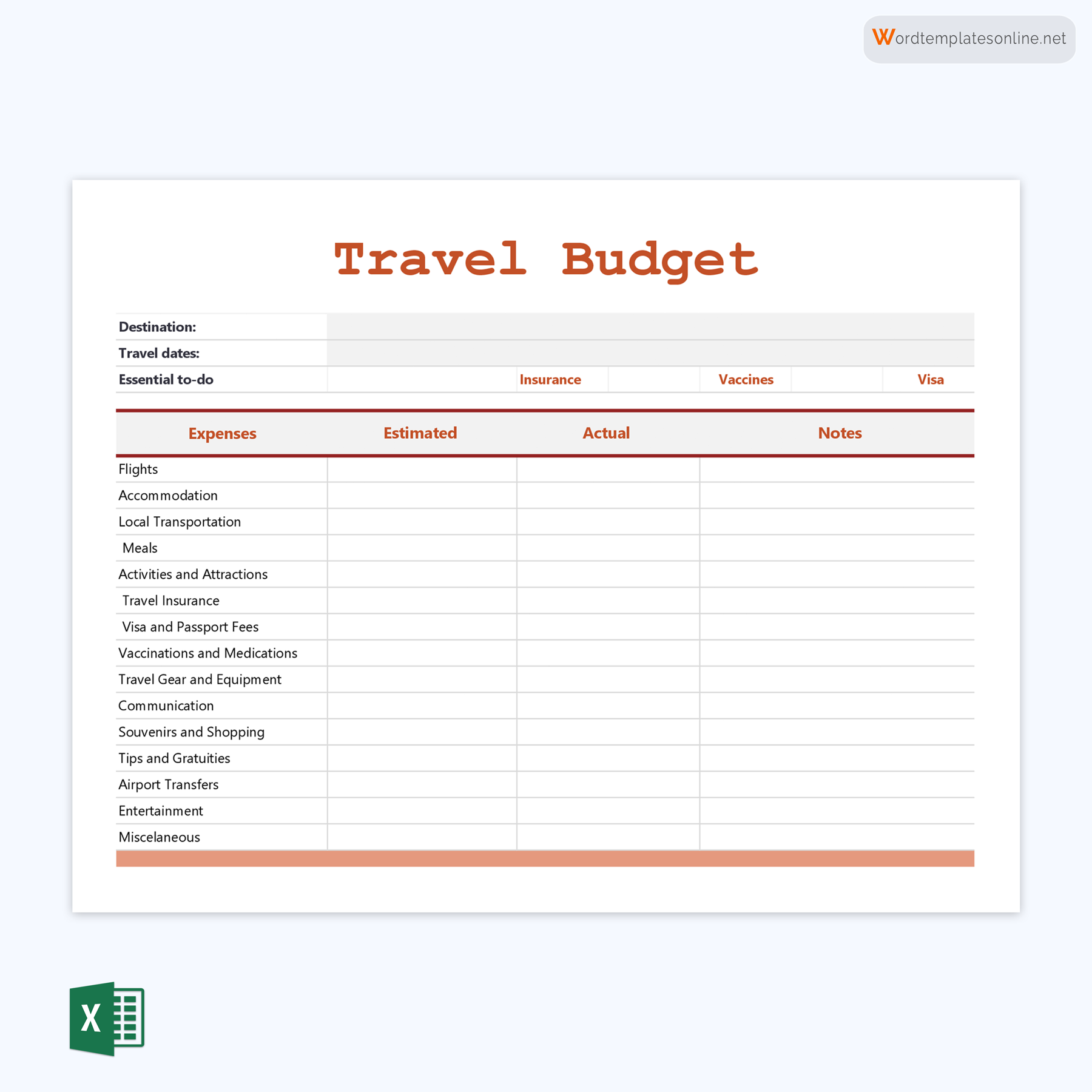
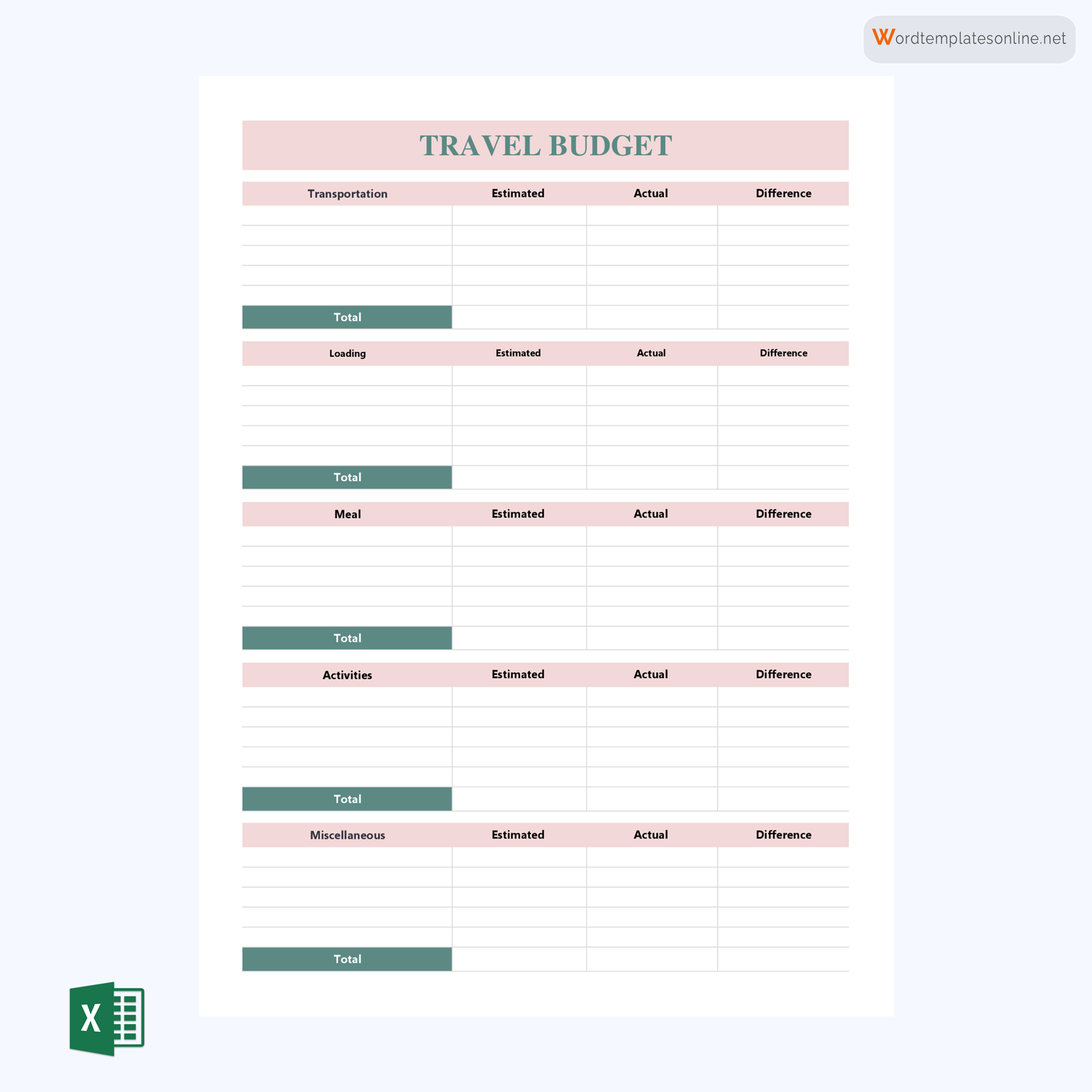
Factors to Pre-Consider When Creating a Travel Budget
Planning a vacation can be frustrating, but budgeting helps you understand how much your trip will cost. A travel budget enables you to estimate all the expenses in advance to determine everything you can afford and avoid spending more than you intended. That is the best way to eliminate stress and make your vacation enjoyable.
Here are the critical factors to consider before creating it:
Think about how you spend at home
Creating and sticking to a budget while traveling can be challenging if you are not conscious of daily spending habits at home. Consider cutting unnecessary expenses like subscriptions or cooking classes to save for your trip. Calculate your monthly expenses to see how much you can add to your savings account. Once you have your savings, you can plan a vacation confidently.
Analyze your previous travel spending
How you spend money while traveling can also help you plan finances for your next vacation. Analyzing your past spending will help you determine which essentials you need and what you can remove.
Create a list of all expenses on a previous trip, including meals, clothing, souvenirs, flight tickets, tours, and local transportation like cab or bus rides to and from the airport. Calculate the costs of the items you purchased for that vacation, such as a travel adapter and skincare products, and everything you bought at the destination, like food, drinks, and museum tickets.
Examining past transactions may be boring, but it will help you understand how much you spend while traveling and create a realistic budget.
How to Create a Travel Budget: 6 Easy Steps
Planning a trip does not mean you will spend time worrying about the costs and forget to have fun. A budget will help you enjoy a stress-free vacation, knowing where your money will go during the trip and focusing on all the places you will explore.
We offer free downloadable templates to help travelers eliminate the hassle of creating a budget and listing the necessary categories. Find a suitable template, download and customize it to your needs, and plan your travel finances confidently.
If you decide to make one independently, you can follow the step-by-step guide below:
Step 1: Make a list of all preparation expenses
Preparation expenses include the finances you need to spend for your upcoming trip. Here are the crucial:
- Besides a valid passport, you will need a travel visa for specific countries. Obtaining both can take weeks, and application fees vary among locations. Your destination will also affect visa costs, so research the necessary expenses.
- Protecting yourself against diseases present in specific locations is critical. Learn which vaccines you might need for your trip in advance because some require multiple doses over several weeks, and add them to your budget.
- You will need luggage to pack the necessary items for your trip, including travel gear like portable chargers, a camera, headphones, and hiking equipment. Calculate how much money you will need to buy a suitcase, backpack, and travel gear, and add the expenses.
- Besides the necessary toiletries, you may need to buy new clothing for your trip, such as walking shoes or a tracksuit. Include all those expenses.
Your preparation expenses will be low if you already have the necessary clothing, luggage, travel gear, and passport and do not need a vaccine for your desired destination. For instance, you can travel visa-free to Europe or Australia for three months or 30 days if you visit South Africa and most Asian countries.
Step 2: Include insurance and incidental expenses
Including travel insurance expenses in your budget will help you know how much you will need to spend on proper coverage. Your chosen insurance policy may not cover incidental expenses, like prepaid accommodation and car rentals, so you should plan accordingly in case of an unexpected event.
Travel insurance costs vary among providers, so research in advance to find a suitable policy and include it in your budget. Most cover canceled or delayed flight costs, trip cancellation or interruption, lost or damaged luggage, and emergency medical expenses. If you travel by car or plan to rent a vehicle at your destination, include auto insurance.
Step 3: Add vacation expenses
Vacation expenses include the costs of services you book in advance and everything you buy during your trip, like food and souvenirs. Here are all the vacation expenses to include in your budget:
- Your travel destination will affect your budget the most, including airfare, lodging, food, beverages, local transportation, vaccination, and travel visa expenses. Researching the costs in advance will help you choose a place you can afford.
- Airfare is another significant expense. Car rental, parking, tolls, gas, or local transportation costs like cab or bus rides to and from the airport and around town should also be included.
- Whether you book a hotel, hostel, vacation rental, or resort, lodging will be the most significant expense to add to your budget. Remember to estimate the additional costs of amenities your accommodation may charge, such as Wi-Fi and laundry service.
- Food is another vacation expense to consider when creating a budget. Whether you plan on eating at restaurants, buying street food, or purchasing fresh produce to cook meals, estimate the costs.
- If you plan on booking day trips, guided tours, or tickets for events or water activities, check the prices and possible discounts beforehand and include them.
- Vacation expenses often include the costs of souvenirs and gifts for friends and family members. Create a list of loved ones to buy gifts for and estimate the expenses to add to your budget.
Step 4: Look for places to save
Once you determine all the vacation expenses, consider the costs you can reduce or remove to save on your vacation.
Flight tickets are a significant expense, so consider traveling by car. Research parking options in advance to find free or cheap parking and ensure you do not get a potential ticket for leaving your vehicle in a restricted zone. If you want to fly to your destination, book airfare months in advance, avoid peak seasons, look for last-minute deals, and buy one-way tickets.
Save on local transportation by renting a car, which is often cheaper than cab rides. Public transport is the most affordable, primarily if you purchase a multi-day ticket. You can cut transit expenses by exploring the destination on foot, which is the best way to minimize your travel budget.
Food is another expense you can reduce while traveling. Eating food at small diners, buying street food, and purchasing local produce from a grocery store to cook meals will cost you less than dining at restaurants. Another way to save on food is to find accommodation offering complimentary breakfast or additional meals.
You can also save on travel activities. For instance, many museums offer free or discounted admission on specific days. Many cities worldwide offer affordable travel passes for visiting multiple historical landmarks and museums for free. Besides fast entry, you can enjoy excellent savings if you plan an extended stay to explore as many attractions as possible.
Step 5: Estimate the costs for each expense
Once you add the travel expenses to your budget, calculate their costs to know how much you will pay for the trip. Estimating them in advance will help you determine whether you should save beforehand or can afford the trip soon.
Here are the expenses you can estimate and include:
- Flight tickets: Visit multiple airlines’ websites to see how much a flight to your desired destination will cost. Compare the prices for different departure dates, ticket types (one-way or return), and flight types (direct or layover) to find the cheapest option.
- Luggage: Compare checked-in and carry-on luggage fees before booking a flight because they vary among airlines. Some airlines allow one free carry-on bag, but you must pay for checked-in luggage regardless of the air carrier. Research the options to choose the best airline for your needs and add luggage fees.
- Accommodation: Explore your destination’s top-rated lodging options online to discover average room prices for the time you want to travel and budget accordingly. When comparing accommodation prices, calculate taxes and services like cleaning because room prices often do not include them. Estimate the costs of services that may incur additional charges, such as Wi-Fi and parking, and add them.
- Gas, tolls, and parking: If you plan on traveling by car, estimate how much money you will need for gas, tolls, and parking. Calculate gas expenses according to your vehicle and route, learn which tolls you will have to pay, and research parking options at your destination. If your accommodation does not offer free parking, find nearby options and compare their prices to estimate how much it will cost to park your car during the trip. If you plan on leaving your car at the airport before flying, calculate the cost of using its parking space at a nearby location and add the expenses.
- Car rental: If you want to rent a car on vacation, compare multiple companies’ rates to calculate the costs and add them to your budget. Besides daily and weekly rental prices for different vehicle types, estimate the costs of add-ons, like insurance, GPS navigation, and roadside assistance, and include them.
- Local transportation: Estimate the cost of reaching your booked accommodation once you arrive, traveling around town, and going to the airport once your vacation ends. Learn how much bus or metro tickets and cab fares cost to choose the best option.
- Meals: Research the restaurants, diners, small eateries, cafes, and other options at your destination to calculate average food and beverage prices. Create a list of establishments you want to visit to estimate how much you will spend on meals, and add the expenses.
- Entertainment: Calculate the costs of the attractions, activities, and events you will enjoy at your destination. Visit their websites to find ticket prices and possible discounts, and include them in your budget.
Step 6: Plan for unexpected expenses
Plan for unexpected expenses to handle an unforeseen situation if it occurs. Create an emergency fund to cover unexpected expenses like impulse purchases, medical bills due to an accidental injury, or a flight ticket home if you need to return earlier. Ensure you have spare money for food if you lose your credit or debit card and sufficient funds for additional accommodation if you need to extend your stay.
Frequently Asked Questions
Many fantastic destinations worldwide are ideal for traveling on a low budget. Some of the cheapest include:
Thailand
Vietnam
Cambodia
Indonesia
Greece
Turkey
Czech Republic
Romania
Cuba
Guatemala
Mexico
Columbia
Morocco
It depends on the destination, season, length of stay, the activities you will engage in, and the events you will attend, among other factors. Your eating habits and travel style also impact your expenses. Estimate all the costs during planning to see what you need and what you can remove from the itinerary. That is the best way to determine how much money you will need.
Tracking your expenses will help you stay on budget while traveling. You can set daily spending limits and take only the money you need to explore the city while keeping the rest in your hotel room safe. You can make notes of all transactions or use an app to monitor your finances. Preparing meals instead of eating at restaurants and packing snacks for extended sightseeing adventures will also prevent you from overspending.

